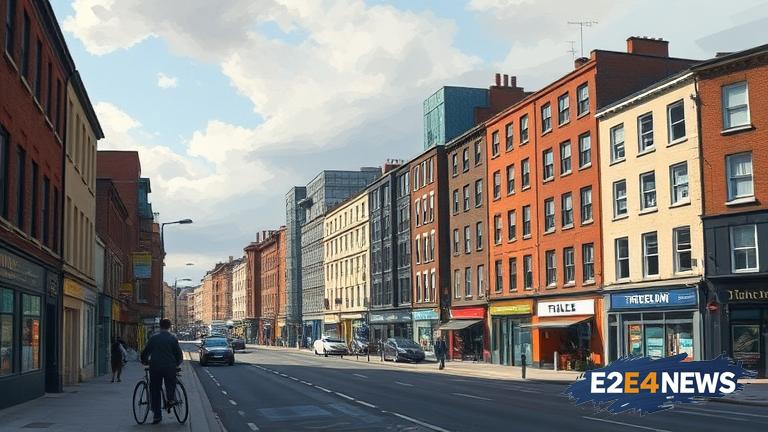The Tribeca Belfast development, a £500 million project aimed at revitalizing a former industrial site in the heart of Belfast, has been touted as a flagship example of the city’s post-conflict regeneration. However, critics argue that the project embodies the worst excesses of neoliberal urban development, prioritizing the interests of wealthy investors and corporations over those of the local community. The development, which includes luxury apartments, offices, and retail space, has been criticized for its lack of affordability and failure to provide adequate social housing. Furthermore, the project’s reliance on private investment and tax incentives has raised concerns about the city’s ability to deliver public benefits and ensure that the development serves the needs of all citizens. Despite these criticisms, the project has been championed by local politicians and business leaders, who argue that it will bring much-needed investment and jobs to the area. However, others argue that the development represents a missed opportunity to create a more inclusive and sustainable urban environment. The project’s focus on luxury apartments and high-end retail has been criticized for exacerbating the city’s existing social and economic inequalities. Additionally, the development’s failure to incorporate adequate community facilities and public spaces has raised concerns about the city’s ability to foster a sense of community and social cohesion. The Tribeca Belfast development is not an isolated example, but rather part of a broader trend of neoliberal urban development that prioritizes private interests over public needs. This approach to urban development has been criticized for creating cities that are increasingly unaffordable and inaccessible to low-income and marginalized communities. The consequences of this approach can be seen in cities around the world, from the gentrification of urban neighborhoods to the displacement of long-standing communities. In the case of Tribeca Belfast, the development has been criticized for its failure to engage with the local community and incorporate their needs and concerns into the planning process. The project’s reliance on private investment and tax incentives has also raised concerns about the city’s ability to ensure that the development serves the public interest. Despite these criticisms, the project has been defended by its proponents, who argue that it will bring significant economic benefits to the area. However, others argue that these benefits will be largely limited to wealthy investors and corporations, rather than the broader community. The Tribeca Belfast development serves as a cautionary tale about the dangers of neoliberal urban development and the need for a more inclusive and sustainable approach to urban planning. It highlights the importance of prioritizing community needs and ensuring that urban development serves the public interest, rather than just private interests. The project also underscores the need for greater transparency and accountability in the planning process, as well as the importance of incorporating community engagement and participation into decision-making. Ultimately, the Tribeca Belfast development represents a missed opportunity to create a more just and equitable urban environment, and serves as a warning about the dangers of prioritizing private interests over public needs. The development has sparked a wider debate about the future of urban development in Belfast and the need for a more sustainable and inclusive approach to city planning. As the city continues to grow and evolve, it is essential that policymakers and developers prioritize the needs of all citizens, rather than just wealthy investors and corporations. This requires a fundamental shift in the way that urban development is approached, with a greater emphasis on community engagement, social housing, and public benefits. Only by prioritizing the needs of all citizens can we create cities that are truly inclusive, sustainable, and just. The Tribeca Belfast development serves as a reminder of the importance of getting urban development right, and the need for a more nuanced and equitable approach to city planning. By learning from the mistakes of the past, we can create a better future for all citizens, and ensure that urban development serves the public interest, rather than just private interests.
